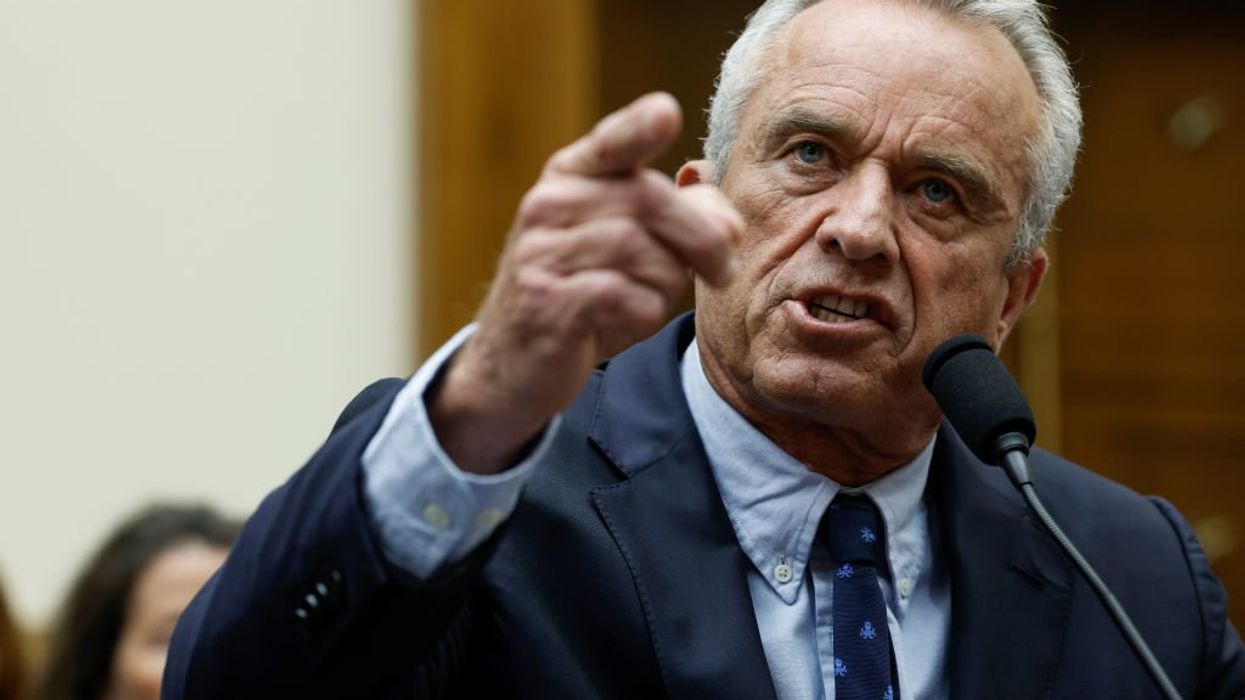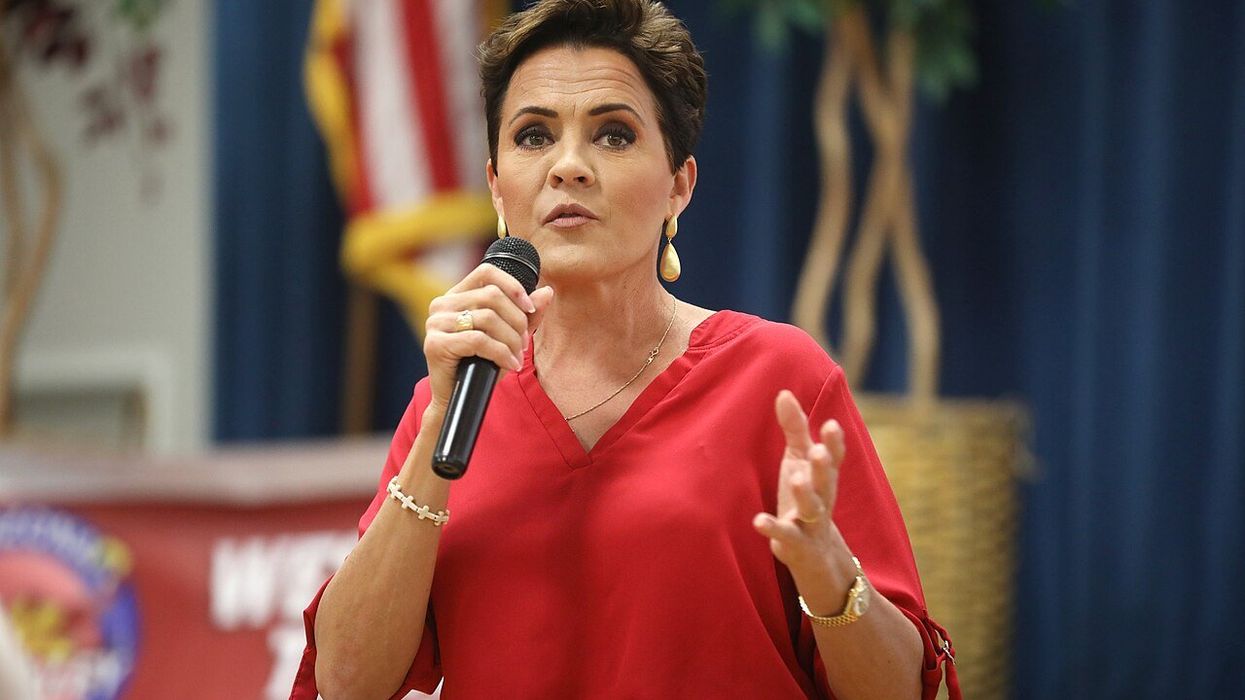In speech after speech, Trump, JD Vance, and others have spoken as if they will have boundless power after January 20, 2025. They are not wrong.
Ralph Nader
Nov 10, 2024
Ralph Nader
Nov 10, 2024
Common Dreams
On September 17, 1787, the last day after the drafting of our Constitution in Philadelphia, Ben Franklin was leaving the building when a prominent resident, Elizabeth Willing Powel, asked him “Well Doctor, what have we got—a republic or a monarch?” Franklin replied, “A republic, if you can keep it.”
On November 5, 2024, our fragile Republic became a Monarchy-elect. A majority of voters elected a Dictator. This is no exaggeration. Look at just some of the damage Donald Trump has done and the appalling things he has said. In July 2019, he declared, “With Article II, I can do whatever I want as president.” And he did, throughout his four years, he violated all kinds of federal laws and provisions of the Constitution, mostly openly, with impunity. He obstructed justice from the White House as a way of life. He defied over 125 congressional subpoenas. He is a very successful fugitive from justice with lawyers skilled at endlessly delaying judges and courts where federal and state prosecutors have obtained indictments. His convictions and adverse civil verdicts are like water on a duck’s back.
He openly admires foreign dictators and meets with them proudly, musing about wanting to be more like them. Moreover, he is gathering around him a large number of vengeful, dictatorial Trumpsters readying to take over the federal departments and agencies. The Heritage Foundation’s Project 2025, 900-page report prepared a detailed blueprint for the corporate state that is the definition of fascism, American style. Together with Trump, they have their “enemies list” both individually and collectively.
Get ready this January for chaos, revenge, greed, rampant abuses of power, and the unbridled control of corrupt plutocrats and oligarchs. With Elon Musk in the lead.
In speech after speech, Trump, JD Vance, and others have spoken as if they will have boundless power after January 20, 2025. They are not wrong. They control the compliant Republican House and the Senate. The U.S. Supreme Court (6 to 3) decided fanatically last June that a president’s “official” conduct no matter how extreme was immune from criminal prosecution. Three of the justices were Trump’s nominees.
He believes his presidency will be above the law. There is no one to challenge him. Ordinary citizens have no “legal standing” to sue. And as is the practice, he will replace all the federal prosecutors working at the Department of Justice, under the new attorney general whom he chooses.
Trump may be on facts and policies, “dumb as a rock,” “with a low IQ!”—to use his words about other persons, but when it comes to knowing the electorate and the mass media, he is a master magician who induces mass masochism. As with violent climate disruptions are “a hoax, drill baby drill.”
He weaves a web of fantasy about his past failed business and presidential records and constantly repeats his megalomaniac refrain: “Only I can fix it.”
His daily lies often come across to his supporters as a form of entertainment garnished with massaging their own grievances and biases into political campaign fodder. He tells those who think they are victims, that he is their savior. He promises a paradise in America in his next presidential term but doesn’t have a clue about how to get there.
As far as the media, his denunciations of them, “fake news,” and the “failing New York Times,” only result in journalists giving him constant top-level coverage, even repeating in CAPITAL LETTERS his pejorative nicknames for people who are not given a chance to reply in the press.
True, the major newspapers have exposed his numerous dark sides—whether personal against women; commercial against workers, students and creditors; against the government with his tax evasions; or as past president, with his brazen violations of law and overt unethical self-enrichment.
Mark Green and I contributed two books—Fake President: Decoding Trump’s Gaslighting, Corruption, and General Bullsh*t in 2019 and Wrecking America: How Trump’s Lawbreaking and Lies Betray All in 2020—about dangerous, corrupt Donald.
However, in the end, nothing stuck or mattered. Do-little Donald’s fulminating lies were embraced by his followers. His slippery Teflon persona was underestimated. Voter acceptance of the Trumpian mirage reflects poorly on the majority of the voters who cast their ballots for him.
Trump did have some crucial luck. A weak, arrogant Democratic Party leadership, loaded with inhibitory corporate campaign money, constrained by corporate conflicted political and media consultants, who control the party’s campaigns and bar input from the experienced citizen community (see, winningamerica.net) made it impossible for the Democratic Party to learn from its past mistakes or its recurring disastrous strategies.
Trump played the Democratic Party, from its bungling nomination process to the anemic Harris campaign like a fiddle—repeatedly, personally, and without a teleprompter, he fed his crowd blatant falsehoods, hateful rhetoric, and delusionary promises. And he gave the middle finger to the “deep state.”
People must realize they are, with all voters, in a two-party duopoly Trap, excluding full access to third-party and independent candidates. No Western country erects, as the USA does, such barriers to ballot access and many other exclusions and endless harassment. (See Theresa Amato’s book, Grand Illusion: The Myth of Voter Choice in a Two-Party Tyranny). A competitive democracy we are not. Still, at the presidential level, alternative candidates are often on the ballot if not in the news or in the debates. But most voters want “to be with a winner,” and glumly or willingly accept their electoral incarceration.
Get ready this January for chaos, revenge, greed, rampant abuses of power, and the unbridled control of corrupt plutocrats and oligarchs. With Elon Musk in the lead.
Fascistic states flow into exercises of terror. The majority of the voters have elected an American Fuhrer. Trump will be our founding father’s greatest nightmare. They inserted numerous protections in our Constitution to block another King George III tyrant with their separation of powers and checks and balances. Come 2025 these protections will be shredded.
On September 17, 1787, the last day after the drafting of our Constitution in Philadelphia, Ben Franklin was leaving the building when a prominent resident, Elizabeth Willing Powel, asked him “Well Doctor, what have we got—a republic or a monarch?” Franklin replied, “A republic, if you can keep it.”
On November 5, 2024, our fragile Republic became a Monarchy-elect. A majority of voters elected a Dictator. This is no exaggeration. Look at just some of the damage Donald Trump has done and the appalling things he has said. In July 2019, he declared, “With Article II, I can do whatever I want as president.” And he did, throughout his four years, he violated all kinds of federal laws and provisions of the Constitution, mostly openly, with impunity. He obstructed justice from the White House as a way of life. He defied over 125 congressional subpoenas. He is a very successful fugitive from justice with lawyers skilled at endlessly delaying judges and courts where federal and state prosecutors have obtained indictments. His convictions and adverse civil verdicts are like water on a duck’s back.
He openly admires foreign dictators and meets with them proudly, musing about wanting to be more like them. Moreover, he is gathering around him a large number of vengeful, dictatorial Trumpsters readying to take over the federal departments and agencies. The Heritage Foundation’s Project 2025, 900-page report prepared a detailed blueprint for the corporate state that is the definition of fascism, American style. Together with Trump, they have their “enemies list” both individually and collectively.
Get ready this January for chaos, revenge, greed, rampant abuses of power, and the unbridled control of corrupt plutocrats and oligarchs. With Elon Musk in the lead.
In speech after speech, Trump, JD Vance, and others have spoken as if they will have boundless power after January 20, 2025. They are not wrong. They control the compliant Republican House and the Senate. The U.S. Supreme Court (6 to 3) decided fanatically last June that a president’s “official” conduct no matter how extreme was immune from criminal prosecution. Three of the justices were Trump’s nominees.
He believes his presidency will be above the law. There is no one to challenge him. Ordinary citizens have no “legal standing” to sue. And as is the practice, he will replace all the federal prosecutors working at the Department of Justice, under the new attorney general whom he chooses.
Trump may be on facts and policies, “dumb as a rock,” “with a low IQ!”—to use his words about other persons, but when it comes to knowing the electorate and the mass media, he is a master magician who induces mass masochism. As with violent climate disruptions are “a hoax, drill baby drill.”
He weaves a web of fantasy about his past failed business and presidential records and constantly repeats his megalomaniac refrain: “Only I can fix it.”
His daily lies often come across to his supporters as a form of entertainment garnished with massaging their own grievances and biases into political campaign fodder. He tells those who think they are victims, that he is their savior. He promises a paradise in America in his next presidential term but doesn’t have a clue about how to get there.
As far as the media, his denunciations of them, “fake news,” and the “failing New York Times,” only result in journalists giving him constant top-level coverage, even repeating in CAPITAL LETTERS his pejorative nicknames for people who are not given a chance to reply in the press.
True, the major newspapers have exposed his numerous dark sides—whether personal against women; commercial against workers, students and creditors; against the government with his tax evasions; or as past president, with his brazen violations of law and overt unethical self-enrichment.
Mark Green and I contributed two books—Fake President: Decoding Trump’s Gaslighting, Corruption, and General Bullsh*t in 2019 and Wrecking America: How Trump’s Lawbreaking and Lies Betray All in 2020—about dangerous, corrupt Donald.
However, in the end, nothing stuck or mattered. Do-little Donald’s fulminating lies were embraced by his followers. His slippery Teflon persona was underestimated. Voter acceptance of the Trumpian mirage reflects poorly on the majority of the voters who cast their ballots for him.
Trump did have some crucial luck. A weak, arrogant Democratic Party leadership, loaded with inhibitory corporate campaign money, constrained by corporate conflicted political and media consultants, who control the party’s campaigns and bar input from the experienced citizen community (see, winningamerica.net) made it impossible for the Democratic Party to learn from its past mistakes or its recurring disastrous strategies.
Trump played the Democratic Party, from its bungling nomination process to the anemic Harris campaign like a fiddle—repeatedly, personally, and without a teleprompter, he fed his crowd blatant falsehoods, hateful rhetoric, and delusionary promises. And he gave the middle finger to the “deep state.”
People must realize they are, with all voters, in a two-party duopoly Trap, excluding full access to third-party and independent candidates. No Western country erects, as the USA does, such barriers to ballot access and many other exclusions and endless harassment. (See Theresa Amato’s book, Grand Illusion: The Myth of Voter Choice in a Two-Party Tyranny). A competitive democracy we are not. Still, at the presidential level, alternative candidates are often on the ballot if not in the news or in the debates. But most voters want “to be with a winner,” and glumly or willingly accept their electoral incarceration.
Get ready this January for chaos, revenge, greed, rampant abuses of power, and the unbridled control of corrupt plutocrats and oligarchs. With Elon Musk in the lead.
Fascistic states flow into exercises of terror. The majority of the voters have elected an American Fuhrer. Trump will be our founding father’s greatest nightmare. They inserted numerous protections in our Constitution to block another King George III tyrant with their separation of powers and checks and balances. Come 2025 these protections will be shredded.


















